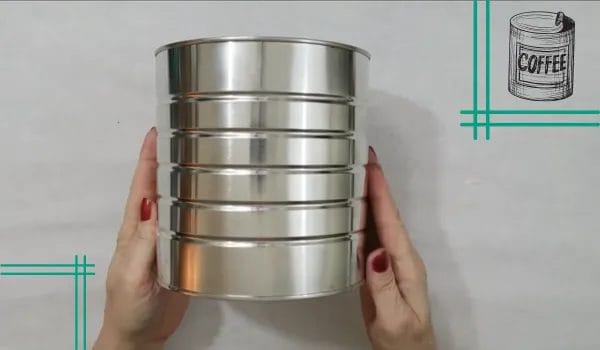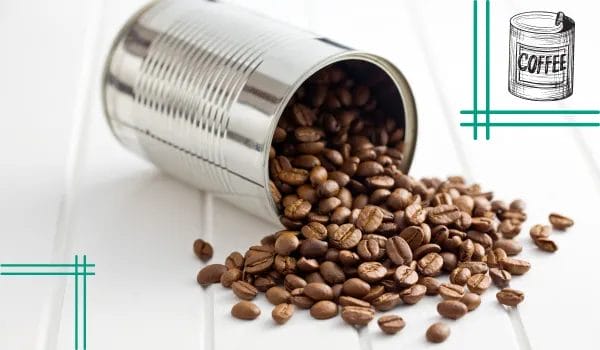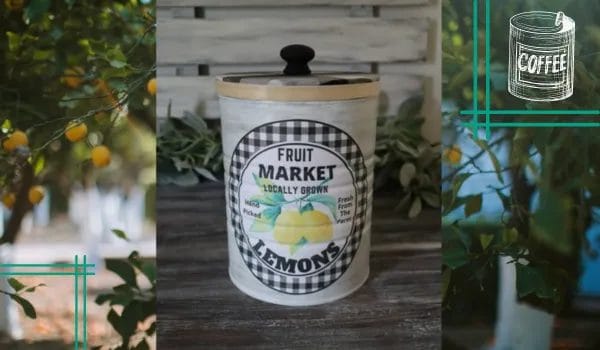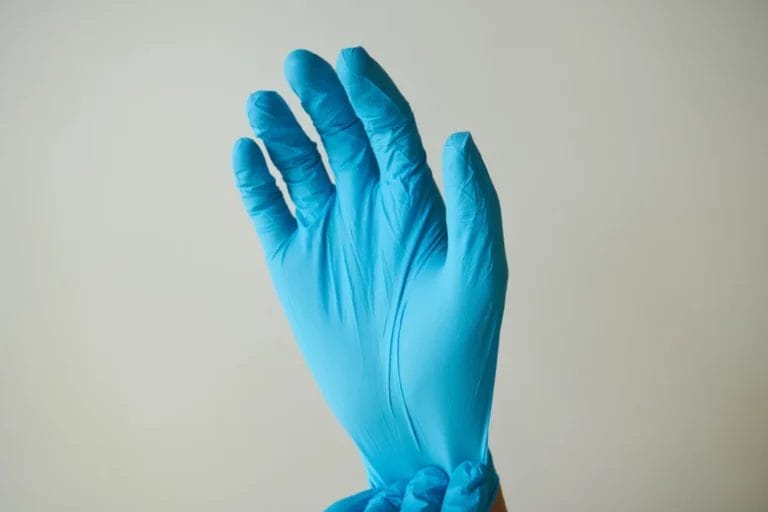Recycling Metal Coffee Cans: The Responsible Choice
Unearth the potential in your pantry as we guide you on recycling metal coffee cans, turning your morning ritual into an exercise in responsible and sustainable living!
Do you enjoy a cup of Java every morning? Do you have an ever-growing collection of empty coffee cans piling up in your kitchen? If so, it’s time to put those cans to good use! This blog post will show you how recycling metal coffee cans is not only the responsible choice but also an easy and creative way to reuse your favorite containers. Read on for some fun ideas!
What are coffee cans made of?

You probably know that coffee cans are great for storing your favorite brew, but did you know what they’re made of? Coffee cans come in two materials: tin and aluminum. Tin is a soft, malleable metal that is used to line the can and protect the coffee from oxidation.
This helps keep the coffee fresh and tasty! Aluminum is lightweight yet strong, making it perfect for keeping your coffee safe while on the go. Not only are these cans air-tight, but they’re also 100% recyclable.
So, when you’re done with them, you can just toss them in the recycling bin and feel good knowing that you’re helping reduce waste!
Get Your Hand on Your Eco-Friendly Living Starter Guide!
How to recycle coffee cans

Recycling your old coffee cans can be a great way to reduce your environmental impact and make some unique, creative projects in the process. Here’s how you can get started:
- Choose a recycling bin that is made for the type of metal can you are recycling.
- Make sure the can is completely dry and free of coffee residue.
- Place the can in the bin with the lid facing down.
- When recycling a metal coffee can, be mindful of other recycling items as well.
- Consider sorting metal cans from other recyclable materials when recycling plastic bags, cardboard, glass, and paper.
- This way, you can more easily identify and separate different types of recyclable materials for optimal recycling.
- If possible, avoid purchasing coffee cans that have been recycled multiple times to ensure the contamination is minimal.
- If you cannot recycle a metal coffee can yourself, consider taking it to a local recycling center or landfill for disposal.
Now that you know how to recycle coffee cans, get creative and have some fun!
Benefits of recycling coffee cans
Both cardboard and metal coffee cans are recyclable, which can help reduce their environmental impact. Coffee cans made from plastic or cardboard are usually made from 25-100% recycled material. This means that the materials used to make them have been recycled multiple times.
Recycling coffee cans helps reduce waste and can have a lasting impact on our local communities. It’s also cheaper than compostable bags, which is great news when prices are rising. On top of that, coffee grounds contain potassium and nitrogen, so plants can benefit from them, too. Plus, recycling is easy, there are plenty of centers out there to help you do it. So give those coffee cans another chance and join the recycling revolution!
The Environmental benefits
Coffee cans made from steel are considered to be more environmentally friendly than plastic and cardboard coffee cans. The production of plastic and cardboard coffee cans can have a negative environmental impact, as they require significant resources such as energy and water during their manufacturing process.
This can lead to increased pollution and waste. Cardboard coffee cans are made from non-recyclable material, meaning they must be disposed of properly to ensure they are recycled.
Pour-over coffee makers are an eco-friendly alternative to standard coffee makers, as they are made from recyclable materials and do not require electricity. It is important for consumers to ensure that coffee cans are properly disposed of after use to help reduce the environmental impact of coffee production and consumption.
The Economic benefits
Coffee cans are a popular type of packaging used for coffee. They are typically made from aluminum or steel and can be recycled after being used. These cans are usually around 5 inches in diameter and 12 inches in height and can come in different shapes and sizes. Some coffee cans are made from 100% recycled material, which can help reduce the environmental impact of coffee production. To reduce environmental impact, it is important to know what type of material your coffee can is made out of and whether it is recyclable or not.
The shift to plastic and cardboard coffee cans has largely been driven by environmental concerns, as well as economic factors such as cost-effectiveness. These cans are both more recyclable than metal and cheaper to produce, making them a cost-effective alternative to metal coffee cans. However, all types of coffee cans must be properly disposed of after use to help reduce the overall impact of coffee packaging on the environment.
Ideas to Upcycle Your Old Coffee Cans

Hey there! Ready to give your old coffee cans a new life? Here’s how you can do it with ease and style!
- Turn them into planters for your garden
- Make a baking pan for cakes and pies
- Create a birdhouse for your feathered friends
- Cover the cans in burlap to use as canisters in your kitchen
- Create wine racks or storage containers
- Use them as seed starters for a frugal gardening project
- Create premeasured coffee filters in a jiffy
- Make an Easy Upcycled Coffee Can Cake Plate
- Get creative with a Repurposed Coffee Can project!
Finally, don’t forget to avoid recycling disposable cups or other dining waste such as Solo cups, straws, paper plates, plastic cutlery, and takeout containers.
Happy upcycling!
Conclusion

I hope this guide gave you some helpful tips and tricks on how to recycle coffee cans properly. Now that you’re more informed, I’d love to hear from you: What other ways do you use to recycle coffee cans? Share your ideas in the comments below.
Frequently Asked Questions
Can Folgers Coffee Cans Be Recycled?
Yes, Folger’s coffee canisters and lids can both be recycled. These materials are made of plastic types 1 and 2, which are both safe to recycle in most recycling centers.
However, it is important to make sure that the canister is clean of any coffee residue before you recycle it. Additionally, aluminum coffee cans are recyclable as well, so check with your local recycling center to see what materials they accept.
Recycling these materials will help to reduce the amount of waste in landfills and conserve natural resources.
Are old coffee cans recyclable?
Yes, most metal and plastic coffee cans and lids can be recycled. However, not all recycling facilities accept aluminum cans, so it is best to check with your local recycling center before you recycle them.
Cardboard coffee cans with aluminum lining or a waterproof coating or wax may not be accepted by local recycling centers.
To maximize the recyclability of coffee cans, it’s important to clean out any coffee residue before disposing. Some coffee companies may also offer special programs to recycle used cans.
There are also several organizations that specialize in recycling coffee cans, such as TerraCycle and ECO-CYCLE. These organizations have set up drop-off locations throughout the United States where people can drop off their coffee cans for recycling.
What Happens to The Coffee Cans After They’re Recycled?
The recycling process of coffee cans can vary depending on the material they are made out of. Steel cans typically use at least 25% recycled steel material, while some cans can have nearly 100% recycled material incorporated into them.
When it comes to actually recycling these coffee cans, they can be broken down further to create materials that are used in new products. K-Cup Pods can be recycled by breaking them into individual components and sorting them into their respective categories before recycling.
Steel coffee cans can also be repurposed and reused through oxidation removal and primer application. Once the cans are cleaned and treated, they can be used to create new materials like new steel cans or other products.
Empty coffee cans can even serve a useful purpose around the house as kitchen scrap holders. You can store food scraps in between trips to the compost pile with them!






